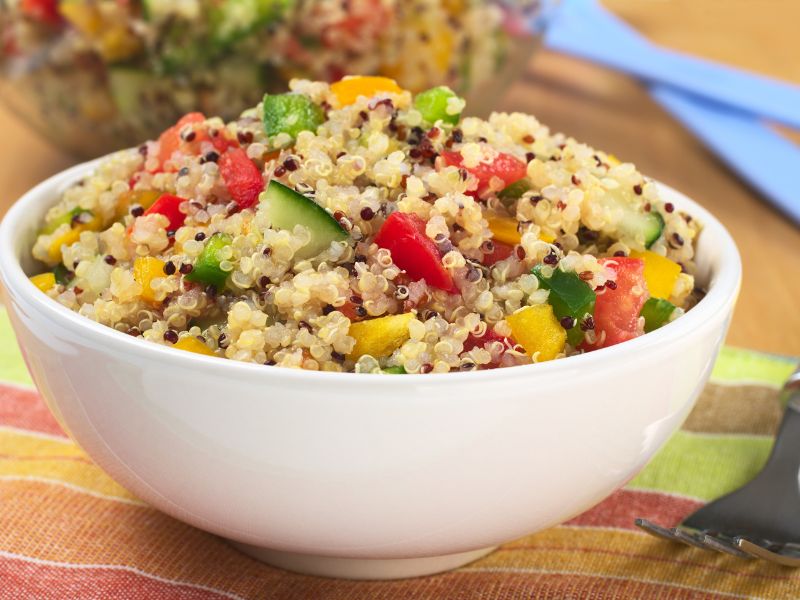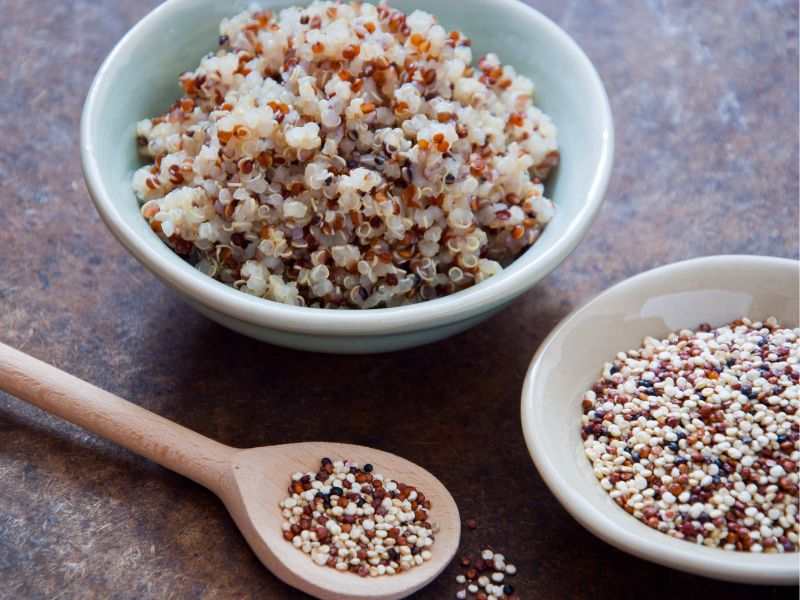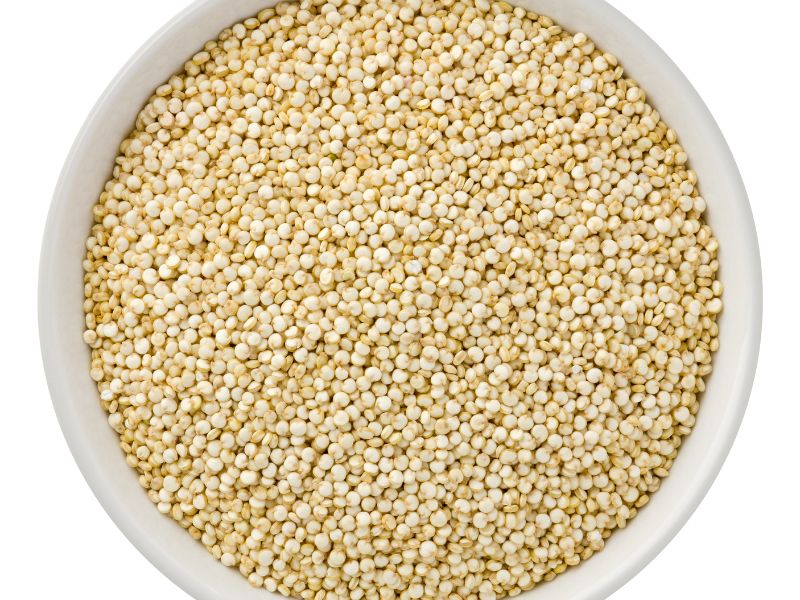Quinoa, pronounced keen-wah, has emerged as a nutritional powerhouse and a staple in many health-conscious diets. Originating from the Andean region of South America, this ancient grain is celebrated for its exceptional health benefits and versatile culinary applications.
Rich In Nutrients
Quinoa offers exceptional nutritional benefits, serving as a complete protein source with all nine essential amino acids. It makes it a valuable option for vegetarians and vegans seeking alternative protein. Its high fiber content aids digestion, promotes satiety, and supports weight management. Moreover, quinoa is rich in essential vitamins and minerals like magnesium, phosphorus, manganese, and folate, contributing to overall well-being.

Canva. com
Balances Blood Sugar Levels
Quinoa’s low glycemic index (GI) means it has a minimal impact on blood sugar levels. It is particularly beneficial for individuals with diabetes or those seeking to manage their blood sugar levels effectively. The high fiber content in quinoa slows down the absorption of sugar, providing a steady release of energy and reducing the risk of sudden blood sugar spikes.
Heart-Healthy Properties
The heart-healthy attributes of quinoa are well-documented. It is low in cholesterol and contains heart-protective compounds such as potassium and magnesium, which help regulate blood pressure. Additionally, its high fiber content assists in reducing cholesterol levels, further safeguarding cardiovascular health.

Canva. com
Aids In Weight Management
Quinoa’s combination of protein and fiber makes it an effective tool for weight management. The protein content promotes muscle development and repair, while the fiber keeps you full and satisfied, reducing the likelihood of overindulgence. It can be particularly advantageous for those on a weight loss journey.
Gluten-Free And Easily Digestible
For individuals with gluten sensitivities or celiac disease, quinoa is a remarkable alternative. It is naturally gluten-free, making it an excellent substitute for wheat-based grains. Moreover, it is easily digestible, reducing the likelihood of gastrointestinal discomfort commonly associated with other grains.
